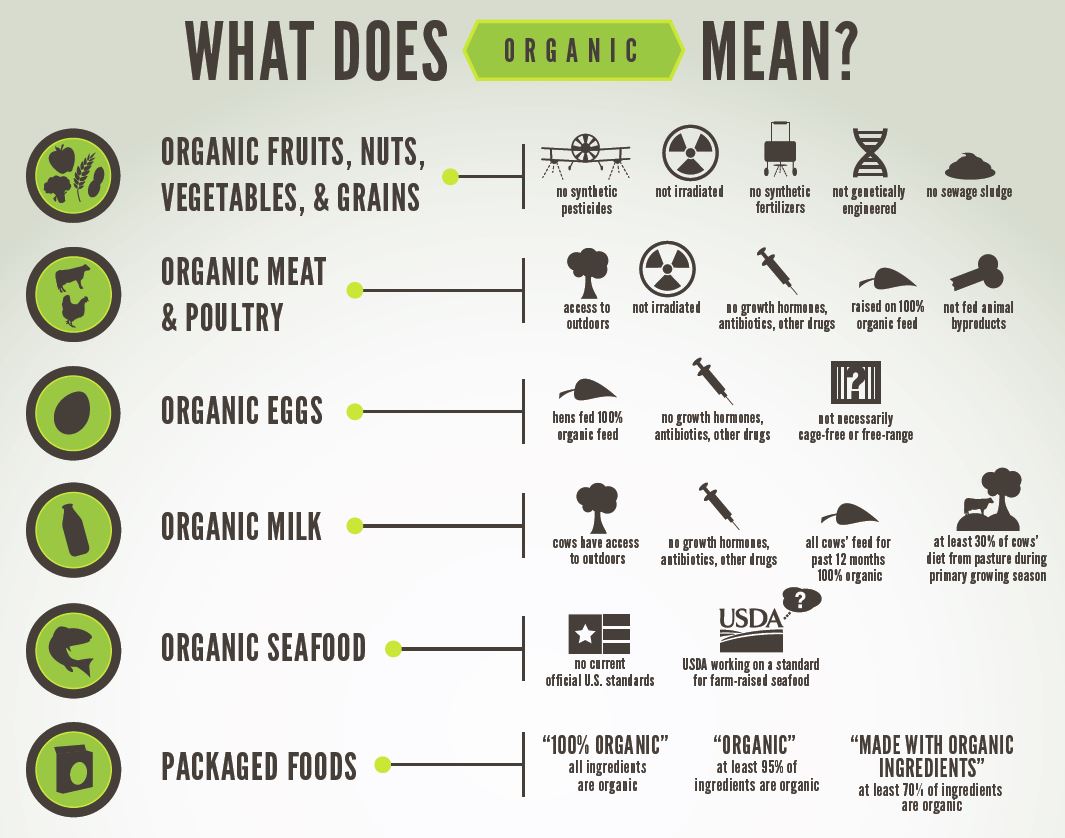In our last nutrition instalment we went over the basics of the raw food diet. Today we cover another common, very controversial nutrition topic: organic food- “certified organic” of course. What does this all mean and how important is it for us and our precious bodies?! Well, read on, for the 411.. or the 101.. or whichever you prefer;) as well as a fun and simple infogram which will help clear things up even further.

There is a lot of confusion around the Organic banner. Some seem to swear by it, others think it’s an over-hyped marketing tool. It can be confusing so here are some of the basics of what is means and what the benefits are.
What it means
Certified Organic food is produced in a way that complies with organic standards set and regulated by national governments and international organizations. The method of organic farming uses minimal “off-farm inputs” (chemicals and pesitcides) and promotes
ecological balance and biodiversity; i.e. using plants and animals to
fertilize plants and animals. This leads to crops that are
consistently much less toxic, better for the soil, more natural, and
more ecologically balanced.
The difference between “Organic” and “Natural”
“Natural” is a blanket term that any company can label a product with to imply health but “natural” only means that the product has been minimally processed. Unlike food that is certified organic, there is not certification or inspection for labelling something “natural”. So while all certified organics are natural, things labeled “natural” aren’t held to any standard and haven’t had any special growing methods or lack of chemicals.
The Big Benefits of Organic Foods
Better for the environment
Organic farming avoids harmful chemicals that contaminate groundwater and rainwater. Organic farming also supports fertile topsoil, making for the best environments. Additionally, unusual varieties of crops and livestock are more likely to be raised organically, which helps to keep the gene pool for food products diversified.
Better For Your Body
Organic foods are not necessarily more nutritious, but are spared all the chemicals and pesticides that are showered over conventional produce. According to Wholefood’s information on Organic foods- “Many EPA-approved pesticides were registered long before extensive research linked these chemicals to cancer and other diseases. Now, the EPA considers 60% of all herbicides, 90% of all fungicides, and 30% of all insecticides as potentially cancer-causing”. Why would you risk putting that garbage into your body?
Here is a great infographic on what exactly the organic label means for different foods. Try out some organic foods this week! It doesn’t always have to be too expensive- checkout a local farmers market or a CSA box system .
Infographic created by Jorge Bach, CSPI.



